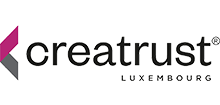- By Sector
-
Corporate
-
Corporate Clients
- Corporate Services
- Company Incorporation and Set-up
- Company Domiciliation and Administration
- Repository services
- Supply Chain Management
- Transfer Pricing Services
- Bond Listing Markets in Luxemberg
- Transfer Agent – Paying Agent – Fiscal Agent – Calculation Agent – Listing Agent
- Luxembourg tax regime for highly skilled expatriates
- Accounting, Legal, Corporate and Tax Advisory
- Payroll Services
-
-
Fund
-
Fund Platform
- Venture Capital & Private Equity
- Special Limited Partnership (SLP) as an Alternative Investment Fund
- Specialised Investment Fund (SIF)
- Reserved Alternative Investment Fund (RAIF)
- Capital Risk Fund (SICAR)
- GP Accounting in Private Equity Funds
- Crypto Fund / Blockchain
- Special Limited Partnership Capital Account
- Pledge Fund
- Parallel Funds
-
-
Family office
-
Family Offices
-
- Publications
- About us
- Contact
-
- By Sector
-
Corporate
- Corporate Structure
- Capital Raising Solutions
- Corporate Actions & Activities
-
Corporate Services
- Company Incorporation and Set-up
- Company Domiciliation and Administration
- Repository services
- Supply Chain Management
- Transfer Pricing Services
- Bond Listing Markets in Luxemberg
- Transfer Agent – Paying Agent – Fiscal Agent – Calculation Agent – Listing Agent
- Luxembourg tax regime for highly skilled expatriates
- Accounting, Legal, Corporate and Tax Advisory
- Payroll Services
- Fund
- Family office
- Publications
- About us
- Contact



.svg)

.svg)

